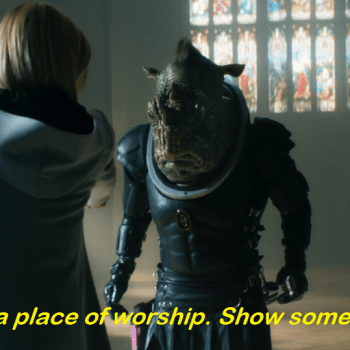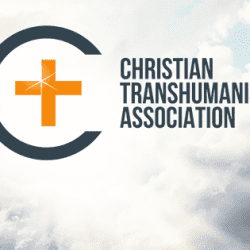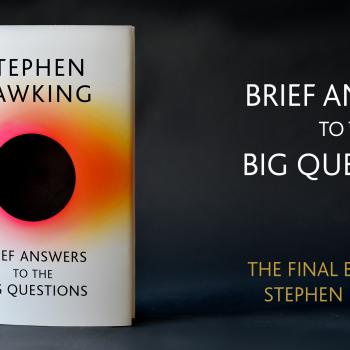The new atheists. Others have called them “soft-core atheists” and “amateur atheists”. What follows is a review of two books by theologians critical of the “new atheism”, and one book by an atheist whose writing and vision have more substance than that of the “new atheists”.
I love reading books simultaneously that complement or contrast with one another, and engage each other in interesting and at times unexpected ways. I recently finished reading two books critical of the “new atheists” (John F. Haught’s God and the New Atheism, Louisville: Westminster John Knox, 2008, and Keith Ward’s Is Religion Dangerous?
, Grand Rapids: Eerdmans, 2006), as well as one book that presents a vision of atheism very different than, and in many respects more appealing and with greater depth than, that of the “new atheists”: Andre Comte-Sponville, The Little Book of Atheist Spirituality
, New York: Viking/Penguin, 2007).
Both critics of the “new atheists” level many of the same charges, ones that have been leveled before. The new atheism’s level of discourse is that of young-earth creationism (Haught, p.xi). They “substitute rhetoric for analysis” (Ward, p.7). Haught’s perspective is particularly interesting, since he has taught theology classes that cover many classics of atheism, and finds these recent books “hackneyed” by comparison (Haught, p.16). Their atheism which nonetheless leaves the status quo the way it is would have nauseated Nietzshe (Haught, pp.20-21). If there is a key criticism Haught levels against the new atheism that is philosophically profound and challenging, it is their assumption that good and evil are absolute, and religion is clearly evil (Haught, pp.24-26; on the question of whether Al Qaeda is “pure evil” see Ward, pp.29-35, 44-45 and 58-59). Such absolutism remains an unexamined assumption, for the most part, and sits awkwardly (and indeed ironically) in the context of their evangelical atheism. It is the very notion that there is an absolute good (and evil) that leads many to religion. Nietzsche, at least, had the courage to see that his atheism implied that there was no such absolute (note too Sartre’s rethinking of the issue).
Theology has had plenty of positive encounters with atheism, and Haught lists great a number of theologians and the atheists who helped shape their thinking (p.93). The new atheists, however, present so little challenge that such dialogue, and the helpful positive impact that might result, seems unlikely to follow. Some “careless Christian thinkers” reduced God to a hypothesis as “first cause” (Haught, p.43), and helped the atheist cause. “So the new, soft-core atheists have arrived at the scene of God’s murder far too late. On each page of their manifestos we find them pummeling a corpse” (Haught, p.44).
If there is one point that Ward makes that stands out among the many good points in the book, it is his suggestion that the perception with which evolution has endowed human beings may not simply be one that just happened to enable our survival. It may be that this perception enabled our survival because it corresponds in helpful ways to what really is (Ward, p.177; see also Haught, pp.49-50, 74). And if we are not to deceive ourselves about reality, then openness to new input and information is important. “Self-criticism is openness to learn from others, not a practical hesitancy about one’s own deepest commitments” (Ward, p.197). Critical thinking and religion are indeed compatible.
Unlike the new atheists, Comte-Sponville presents an atheism that is not opposed to faith, spirituality or religion per se, but to fundamentalism, dogmatism, and the like (p.ix). Already in the preface one encounters the sorts of provocative and insightful statements that characterize the book as a whole: “Being an atheist by no means entails being an amnesiac” (Comte-Sponville, p.x) – there is no need, he considers, to pretend Christianity has not played an important positive role in our history in order to find oneself content as an atheist. And, on the other hand, “Spirituality is far too important a matter to be left to fundamentalism” (Comte-Sponville, p.x). Comte-Sponville’s atheism, like Ward’s faith, is characterized by the desire for honesty. Ward acknowledges that religion sometimes is dangerous. Comte-Sponville acknowledges that “Some believers are admirable…most are worthy of respect” (p.11). Their faith is not something he feels the need to combat – it is simply something he doesn’t share. Perhaps it is easier to take this outlook in France, where his viewpoint is not under threat, whereas in the U.S. atheists still face harassment (e.g. by shouting senators). Comte-Sponville is attempting to formulate a vision of atheism that makes room for depth and meaning. “To be an atheist is not to deny the existence of the absolute; rather it is to deny its transcendence, its spirituality, its personality. It is to deny that the absolute is God. But to be not-God is not to not be!” (Comte-Sponville, pp.136-137).
While Comte-Sponville has in common with the new atheists his continued adherence to many traditional Western values, he differs from them in not pretending that there was no connection historically between these values and religion. “Renouncing a God who has met his social demise…does not compel us to renounce the moral, cultural and spiritual values that have been formulated in his name (Comte-Sponville, p.21). Indeed, it was once suggested to him that he should refer to himself as a “Christian atheist” and thus explicitly acknowledge this heritage; eventually he settled on “faithful atheist” (Comte-Sponville, pp.32-33). If the concept of God has outlived its usefulness, this is not true of many things humanity learned while the concept was still found to be useful. For instance, “It is possible to do without religion but not without communion, fidelity or love. In these matters, what we share is more important than what separates us…Life is more precious than religion; this is where inquisitors and torturers are wrong. Communion is more precious than churches; this is where sectarians are wrong. Finally – and this is where fine people are right, whether they believe in God or not – love is more previous than hope or despair (Comte-Sponville,pp.65-66). Comte-Sponville renounces two “barbarisms” – that of religious fundamentalists, but also that of nihilists.
Comte-Sponville’s atheism is of the “heavyweight” variety. His viewpoint simply dispenses with God, allowing him to fade out of the picture, rather than trying to kill him. He feels no need to pretend that religion has not made a positive contribution to humanity’s history and thinking. Precisely for these reasons, his perspective is more challenging, and is worth engaging. As someone who shares much with Comte-Sponville’s outlook, and yet ultimately expresses his view of the world in theological terms, I welcome the opportunity to dialogue with this book.
I concur absolutely with Comte-Sponville’s challenge to take the world seriously, and even give the evidence from it priority over sacred texts in important respects. “The world is far more interesting to me than the Bible or the Koran,” Comte-Sponville writes. “It is far more mysterious than they are. It is vaster, since it contains them; more unfathomable; more astonishing; more stimulating, since we can transform it, whereas the holy books are reputed to be untouchable; and, last but not least, it is truer, because it is entirely true, something the Bible and the Koran, with all their inanities and inconsistencies, could never be, except insofar as they are part of the world (there is nothing inconsistent about a human text being inconsistent” (Comte-Sponville, pp.103-104). Being itself, on the other hand, is “at once mysterious and self-evident” (p.104). But the texts in question are attempts to make sense of the world, from a particular angle, and to offer guidance for living in the world, and to transform the world, and to point to the transcendent character of Being. On the one hand, I agree that there is a certain logic to the question “The universe is mystery enough. Why invent another one?” (p.104). Yet the universe itself challenges us to respond appropriately to the awesome mystery of existence. Theologians like Tillich have specified that they are talking about Being itself when talking about God, and so there is a sense in which there is no debate. Being exists! Comte-Sponville whimsically dubs this the panontological proof: “The all of what exists necessarily exists” (p.140). For me, the debate is about the nature and character of Being. [And, as I noticed recently, the term I’ve liked to use may be problematic. Does panentheism make sense? If God is more than the universe, then it is not all that is in God. Perhaps we’ll need to coin new terms, such as cosmoentheism or panallonentheism].
This, it seems, is not the real difference between us. The real difference is how we attempt to speak about the absolute. Comte-Sponville suggests at one point that silence is the best option – and there are of course religious traditions that would agree. “Where the absolute is concerned, all forms of anthropomorphism are naïve or ridiculous. Faced with the ineffable, it is best to remain silent” (p.107). Yet later in the book Comte-Sponville admits “we must try to say something about silence” (p.160). Ultimately, both Comte-Sponville and myself have had a mystical experience (see pp.155-156), we both see the limitations of words, and we both agree that speaking (and writing) about the way we perceive reality is necessary, even if words have their inadequacies. Those seeking to claim to have resolved all the mysteries are being dishonest either about their sacred scriptures or about the limits of science. For those who recognize that ultimately we end up at mystery, it is remarkable how much we can agree on how to live in light of that mystery. What divides us is not even so much our perception of the ultimate, but the degree to which we are willing to use metaphors, or certain kinds of metaphors, as pointers to that reality.
When we attempt to engage those who caricature our own position (see Haught p.36) , we are challenged to correct the perception of our position and combat ignorance about it. When we engage those who understand our point of view, sympathize in places, and disagree for clearly-articulated reasons in others, then we are challenged to engage in self-critical reflection, to analyze our own views and assumptions, and to grow in the process. For those interested in engaging stimulating thinkers on the side of either religion or atheism, there are plenty of heavyweights. If you prefer to poke fun, ridicule, and to never realize that you know not that of which you try to speak, then there are plenty of featherweights out there too, on every side of every debate, usually agreeing with their opponents that there are only two choices and that the matter is simple. If you tackle religion vs. atheism, you can not only fight each other, but also take turns pummeling or propping up the corpse of a concept of God that serious thinkers, whether theologians, philosophers or atheists, left behind for dead long ago.
, we are challenged to correct the perception of our position and combat ignorance about it. When we engage those who understand our point of view, sympathize in places, and disagree for clearly-articulated reasons in others, then we are challenged to engage in self-critical reflection, to analyze our own views and assumptions, and to grow in the process. For those interested in engaging stimulating thinkers on the side of either religion or atheism, there are plenty of heavyweights. If you prefer to poke fun, ridicule, and to never realize that you know not that of which you try to speak, then there are plenty of featherweights out there too, on every side of every debate, usually agreeing with their opponents that there are only two choices and that the matter is simple. If you tackle religion vs. atheism, you can not only fight each other, but also take turns pummeling or propping up the corpse of a concept of God that serious thinkers, whether theologians, philosophers or atheists, left behind for dead long ago.












